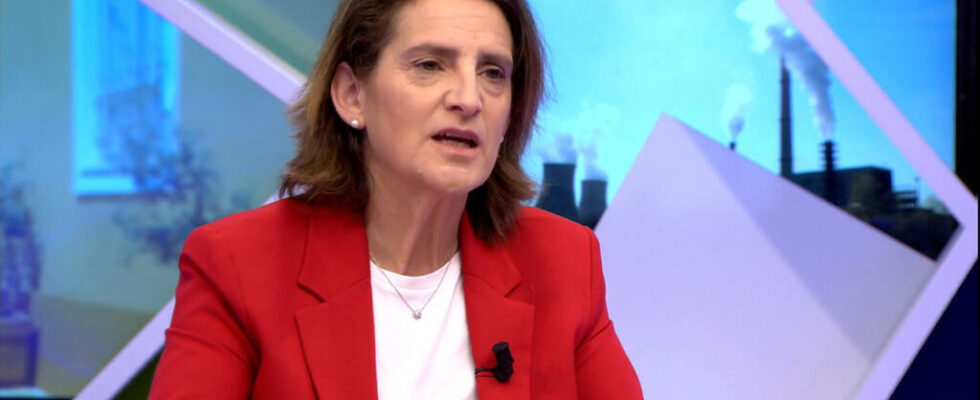This week, we receive Teresa Ribera, first executive vice-president of the European Commission and responsible for a clean, fair and competitive transition. The former Spanish socialist minister presents the initiatives to be carried out by the Commission in order to relaunch the competitiveness of the EU without compromising the protection of the environment and European citizens.
On January 29, 2025, the European Commission presented its plan to relaunch the competitiveness of the European Union (EU), in decline in the face of UNITED STATES and at the China. This “Competitiveness compass“, Notably provides for a”Simplification shockFor companies, that is to say the reduction of administrative constraints towards them. Teresa Ribera wishes to increase the influence of industry European in international markets. “”It is necessary to act to have a competitiveness which lasts but which is also capable of giving short -term answers. It must be ensured that Europe continues to innovate and create jobs quality for Europeans“, Specifies the commissioner.
These administrative simplification measures, in discussion for several years, are struggling to be applied. If Teresa Ribera recognizes a difficult implementation of this simplification, she thinks it necessary: ”It is necessary to complete a simplification which gives the meaning, the direction which one wants to maintain and at the same time which is capable of facilitating life to entrepreneurs and in particular to the smallest of them of them. ”
Environmentalists and NGOs are concerned about the fact that a simplification could be synonymous with deregulation. It could go against the green pact, a set of initiatives whose main objective is to make Europe the first continent to reach the carbon neutrality by 2050. “We don’t want to sacrifice the green pact“Says the first vice-president of the Commission. “”The motivations that have pushed us to make the economy, prosperity and much more sustainable development are still strongShe explains.
Within the twenty-seven, voices, however, rise against the green pact. Like that of the Prime Minister Polish Donald Tusk whose country is very dependent on coal, which is 63 % of its electricity production. If Teresa Ribera admits “misunderstandings in political discussionBetween the Member States, it confirms the intention of the Commission to decarbonize the industry. “”Clean energy offers much lower and predictable prices than energy that depends on fossil fuels. She is better for the health citizens and offers us more autonomy. ”
In terms of environmental protection, the climatoscepticism seems to gain ground in Europe: “It is a danger. Some people want to forget that warming exists. THE global warming has terrible consequences. It has catastrophic human and economic consequences. ”
The former Minister of the Government of Pedro Sánchez defends himself against controversy over the management of terrible floods that have struck Spain in October 2024. She recommends lucidity and excessive precaution: “The development of alarm systems, the ability to connect people, to learn what to do in these situations. Reports show that climate change could lead to a situation where a good part of Europeans could die at the end of this century if we never reactShe explains.
In order to relaunch the union’s economy, the European Commission will also publish new guidelines for the evaluation of mergers and acquisitions of companies in 2026, thus offering the possibility of creating European giants capable of competing with the UNITED STATES and China. “”We must continue to develop the single European market. But if the reference market is not only the European market but the global market, there is room to facilitate a role in European champions“Consives Teresa Ribera. Conversely on the smallest European internal market, you must protect yourself against monopolies “which could have a negative impact on consumers». “”We must remain an open market and at the same time ensure that European manufacturers who respect workers’ rights, environmental standards and public health are not disadvantaged.»»
